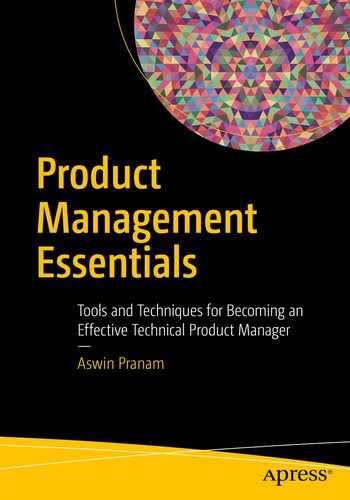Vivek is a Product Manager at TUNE, a mobile analytics and performance marketing platform. Prior to TUNE, Vivek spent time in technology roles at Accenture, Limeade, and Nordstrom. He holds a Master of Science in Computer Science from Georgia Tech and a Bachelor of Science in Informatics from the University of Washington.
What does the term product manager mean to you?
A product manager is above all an advocate for the user. Their primary responsibility is to ship the right product and get it in the hands of the intended user base. Find a problem, design a solution, and find a way to translate that into a product that’s easy, effective, and complete.
Can you break down a “day-in-the-life” of a TUNE PM?
- 6:00 AM - Wake up. Listen to music on my Alexa. Get ready and head to work.
- 7:00 AM - On the bus. Listen to a podcast or read tech blogs.
- 7:30 AM - Look at industry related news, trends, competitor launches.
- 8:00 AM - Arrive at work. Reply to emails and slack messages.
- 8:30 AM - Make my to-do list for the day.
- 9:00 AM - Daily standup with engineering team.
- 9:15 AM - Product team weekly sync. Talk about what we did this week, hope to do next week, ask each other questions.
- 10:00 AM - 5:00PM - Depends on the phase of the project(s) but can involve:
- Hopping on the phone with some customers.
- Strategic thinking days.
- Writing product specs.
- Writing stories and backlog prioritization.
- Wireframing mockups with the design team.
- Whiteboarding technical architecture for a project with an engineer.
- Data analysis using SQL, Spark, and Google Analytics to understand user behavior and measuring KPIs.
- 6:00PM - Bus home. Another email reply session.
- 7:00PM - Gym time or play basketball.
- 8:00PM - Dinner.
- 9:00PM - Read a book or spend some time writing.
What interested you initially about product management?
I enjoy looking for new opportunities, convincing the company that we should head towards this direction, and creating the strategy that will get us there. I realized that I would never truly be happy being a developer or designer, and needed a role that will allow me to dabble evenly across all areas. Achieving balance can be difficult, but that’s where I thrive.
How do you deal with failure as a PM?
I tend to look at failure analytically by measuring the impact of the failure and thinking through the decisions that lead to that product failure. Where did we go wrong? What was the inflection point (if any)? Failure is not the end of the world because you now have a set of lessons to draw from. Even data can be misleading if read improperly, so gut decisions can often lead to better outcomes in circumstances where you feel you have an incomplete picture.
What emerging technologies excite you most for the next five years?
Artificial intelligence / machine learning and virtual / augmented reality. ML will allow us to drive better insights and create new job opportunities that don’t currently exist. With AR / VR, we can develop new experiences that existed only in our imagination previously.
How do you avoid burnout and keep a healthy balance between work and personal life?
Multitasking can often lead to burnout, so I try to fall back into solving one problem at a time. Juggling too much on your plate can leave you feeling like you’re not inching towards a solution, and can be detrimental in the long run, which leads to half baked products. Prioritize, set realistic goals, and recognize that healthy living and exercise are critical in keeping the brain sharp.
What tools make your life easier as a PM?
- Trello for personal task management
- Jira for project management
- Balsamiq for rapid wireframing
- Evernote for note taking
- Google Docs for specs
- Google Forms, SurveyMonkey for customer surveys
- GA, SQL, Spark for analytics
- Intercom for customer messaging and go-to-market
- ProdPad for roadmap strategy and feature request management
What advice do you have for readers who want to get into product but have no prior experience?
I was in this situation, spending time as a technical program manager before transitioning into a product role within my organization. The best advice is to try to do some product work at your current company with spare cycles. I set up bi-weekly 1:1s with 3-4 PMs to learn more about their job, and asked them if there was something I could take off their plate. A couple of them let me write some specs which they peer reviewed, and also let me drive the product until final shipment. I ended up working more than the typical 40-hour week at first, but eventually the company recognized I had a knack for it and promoted a full-time change. Being in a supportive enterprise that allows you to grow and develop your talents in parallel areas makes the task of transitioning much simpler.
